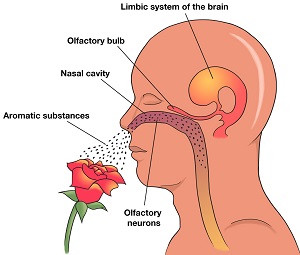Medical errors are ranked as the third leading cause of death in the US. As such, it’s not a wonder to see people increasingly seeking alternative methods of combating their health issues. However, with debates about the effectiveness of alternative medicine spreading all over the social media, things can become confusing real fast.
Among the most contentious issues regarding alternative methods of treatment is the use of essential oils, and most people wonder whether they really work? There is no quick answer to this concern, and it would be wrong to assume that essential oils are decisively effective. This is because different essential oils work remarkably for some health issues while failing terribly in addressing other illnesses. For instance, lavender and peppermint oils do a remarkable job in improving focus while rosemary and sesame serve to enhance blood circulation. Here is an overview of the different essential oils and their uses.
What are Essential Oils?
The term essential oil denotes a concentrated liquid that contains chemical compounds derived from plants. These oils derive the term “essentials” from the fact that they contain plant aromas. Essential oils are harnessed through several methods that include distillation, expression and solvent extraction. Each plant carries different chemical compositions that determine the scent of the extracted oils and the effects they have on the body.
Learn more about essential oils in our complete buyer’s guide.
How to use Essential Oils?
Essential oils are capable of improving the physical, mental and emotional well-being of a person. These oils are comprised of tiny molecules that provide healing and strengthening properties to the body systems responsible for regulating the physiology of a person. These oils can be introduced to the human body through the following methods.
Inhalation
 When a person inhales essential oils, the tiny nerves in the olfactory system immediately send certain signals to the brain. This is done to moderate the functions of the mind and body. Inhalation is considered as the most effective method of administering essential oils as the incredibly nurturing components of these vital plant extracts are delivered directly to the nasal cavity, which has a direct connection to the brain. This can be accomplished through the use of inhalers or diffusers. Sometimes, users are advised to rub some oil on their palms, cover their nose and take a deep breath.
When a person inhales essential oils, the tiny nerves in the olfactory system immediately send certain signals to the brain. This is done to moderate the functions of the mind and body. Inhalation is considered as the most effective method of administering essential oils as the incredibly nurturing components of these vital plant extracts are delivered directly to the nasal cavity, which has a direct connection to the brain. This can be accomplished through the use of inhalers or diffusers. Sometimes, users are advised to rub some oil on their palms, cover their nose and take a deep breath.
Topical Application
When applied to the skin, the healing components within the essential oils are absorbed into the bloodstream through the hair follicles and skin pores. Once inside the skin, these oils are subsequently dispersed to their destined organs. The most common areas on which essential oils are topically applied include the wrists, back of the neck and temple.
Ingestion
Essential oils are ingested by dissolving them in water or combining them with a carrier oil. People should, however, consult with a qualified practitioner before ingesting these oils. This is because just like with any other synthetic medicine, essential oils can cause severe allergies among other side effects.
Health Benefits of Essential Oils
Essential oils are rapidly becoming popular due to their numerous health benefits. Different types of essential oils contain diverse chemical compounds that combat diseases and ultimately improve the well-being of a person. Here are some common health benefits to be derived from the use of essential oils.
Warding of Bacteria and Viruses
The increased use of essential oils is largely attributable to the apparent rise of bacteria that’s resistant to antibiotics. This upsurge triggered research aimed at investigating anti-microbial properties found in plants. Such studies fundamentally proved that essential oils could suppress bacterial and fungal strains like Candida albicans and E.Coli. Essential oils like peppermint and tea tree present an excellent antiseptic mouthwash and are believed to have properties that can heal a sore throat. On the other hand, lavender oil and lemongrass contain very strong anti-fungal properties that come in handy when treating yeast infections. It’s also believed that lemongrass and allspice oil contain strong anti-viral effects.
Combating Mental Disorders
Mental disorders like anxiety and depression are extremely prevalent. While it’s not easy to tell when someone is struggling with such psychological issues, there are telltale symptoms for which people can look out. Some of these signs include sadness, moodiness, fatigue, low self-esteem, reduced sex drive and loss of appetite. Inhaling or applying essential oils on the skin can help to ease depression and anxiety. Some essential oils compounds go a long way in combating mental issues.
For instance, bergamot oil is extremely stimulating, which makes it a great antidepressant. It makes the user feel fresh, joyful and energetic by enhancing their blood flow. In fact, scientific studies show that bergamot does a remarkable job at easing anxiety. Other essential oils that are known to combat depression and anxiety include ylang ylang, lavender, and chamomile. Also, essential oils like peppermint, rosemary, ginger and lemon balm go a long way in helping people control the symptoms of dementia and Alzheimer’s disease.
Relieving Headaches and Migraines
A significant number of people experience occasional headaches with most of them being caused by tension. While there are numerous over the counter medications for relieving headaches, these prescriptions are associated with several side effects like nausea and dizziness. It’s, therefore, not surprising to find people who frequently suffer from headaches using essential oils as a natural alternative to OTC medication. The use of essential oils for a headache is backed by several studies. For instance, it has been shown that applying a mixture of ethanol and peppermint oil on the forehead and temple helps to relieve a headache instantly. Also, chamomile and sesame oil have been traditionally used in Persia to treat both headaches and migraines effectively.

Improved Sleep
A good night’s sleep is extremely important for optimal health and well being of a person. In fact, getting enough sleep is as important as exercising and eating healthily. Unfortunately, between running a startup and looking after the kids, most people can hardly dedicate a few hours to sleep. Others are unable to sleep through the night due to fatigue or simply because they are too stressed. Irregular sleep patterns can adversely affect a person’s productivity and mood. It also makes people feel fatigues and thus not ready to face the day. While sleeping pills can help people find some sleep, they can be addictive in addition to causing daytime drowsiness.
Fortunately, essential oils such as peppermint, vetiver, roman chamomile, ylang-ylang, sandalwood, and marjoram can be relied upon to induce sleep safely. Lavender oil has also been shown to improve sleep especially among women after childbirth and people with heart disease. Similarly, bergamot contains calming effects that go a long way in inducing sleep especially among people who are battling with depression and anxiety.
Enhanced Testosterone Levels
For men, it’s extremely important to be armed with the necessary tools for warding off whatever mental and physical challenges life throws at them. The right testosterone level is among the greatest weapons men use when looking to maintain a healthy sex drive, bone density, and muscle mass. Although their bodies continuously produce testosterone, the production levels drop dramatically as they age.
Luckily, taking a few measures such as getting enough sleep, maintaining the right body weight and minimizing the consumption of sugar can go a long way in keeping testosterone levels in check. One may also take advantage of the vital compounds found in essential oils. For instance, geranium, sage, and fennel go a long way in detoxifying the body and balancing the hormones, which in turn boost testosterone levels. Sandalwood is also a popular aphrodisiac that balance testosterone levels with the ultimate goal of improving one’s sex drive. It’s also used as a grounding oil that reduces anxiety and thus helps people relax.
Healing Acne
Acne is a common inflammatory skin condition that affects a significant number of people. This condition often affects teenagers with most of them grow into adulthood with the symptoms. One of the primary causes of an acne breakout is clogging of the skin pores coupled with acne bacterium. While there are numerous treatments for acne breakouts, essential oils are particularly preferred because they also improve the overall health of the skin. These oils also come in handy when looking to balance the teenagers’ hormones as well as reducing stress.
Tea tree oil, for instance, is ranked among the best essential oils for treating acne. This oil contains critical anti fungal and antibacterial properties that give it an upper hand in reducing the chances of acne breakouts. Clary sage is another excellent essential oil that helps to ward off acne breakouts, which also contains vital anti-inflammatory properties. This oil also eases skin irritations caused by acne flare-ups. Other essential oils that can help to relieve acne include lavender, peppermint, and juniper berry.
Pain Reliever
There are different kinds of pain caused by different factors. For instance, joint pain is usually caused by arthritis, but it can also result from fibromyalgia or an injury. Likewise, neck pain can result from injury on the connective tissues, joints or the muscles located around the spine. Some pains can also be caused by infections, including digestive disorders like constipation and irritable bowel syndrome. These conditions can cause a great deal of pain especially if they go on for long unattended.
To tease pain using essential oils, people employ several methods. These techniques depend on a few factors that include the type of pain being treated and its location. For instance, muscle aches are treated using an essential oil massage. This involves mixing an essential oil like peppermint with carrier oils such as jojoba, olive avocado, coconut, and sweet almond.
Inhaling lavender oil is also known to help ease the pain among children who have had their tonsils removed. Likewise, a quick swab of lavender oil effectively reduces the pain that’s normally experienced when hemodialysis needles are being inserted into a patient’s body. Also, ginger, cypress, and eucalyptus are effective essential oils that are used to treat muscle spasms. Other essential oils used for easing pain include frankincense, lemon, marjoram, geranium, myrrh, black pepper, and rosemary.
Reducing Nausea, Motion Sickness, and Vomiting
Nausea and motion sickness are among the leading culprits for ruining a good time. These nasty feelings often strike during fun times such as when traveling or visiting an amusement park. Nausea is caused by several factors like food poisoning, some medications, overeating, and ulcers. Luckily, people can defend themselves against this uncomfortable feeling by using essential oils. Ginger and lavender are among the best plant essences that can prevent or ease nausea. These oils operate like antiseptic, anti-inflammatory, tonic, laxative and stimulants.
Also, peppermint will come in handy in facilitating digestion in addition to providing antispasmodic and antiemetic properties. Chamomile is also another helpful essential oil that goes a long way in treating gastrointestinal disturbances like indigestion, vomiting, nausea, diarrhea and motion sickness. This essential oil gets rid of nausea by soothing the stomach, dispelling gas and relaxing the muscles responsible for facilitating the movement of food in the intestines.
Improving Focus and Mental Clarity
A lot of people are currently suffering from an inability to stay focused on their daily activities due to some key factors. Emotional distress, fatigue and lack of enough sleep, as well as hormonal changes especially among women, can be blamed significantly for poor concentration. Unfortunately, most drugs that help in improving mental clarity come with major side effects like insomnia and irritability. It, therefore, isn’t surprising that many people are seeking essential oil as safer alternatives for boosting their focus.
Some of the essential oils that can help someone in their quest for improved focus include peppermint, which stimulates the mind and reduces nervousness. This essence also activates the mental senses thus keeping a person alert. Lavender oil is also instrumental in enhancing concentration. It relaxes the nerves, promotes better sleep and boosts one’s memory. Other essential oils such as basil, sage, and rosemary are also known to have a calming effect on the mind in addition to their ability to boost the user’s memory.
Enhanced Respiratory Functions
Along with the heart, the respiratory system is responsible for executing some extremely vital function in the human body. A slight drop in the functionality of these organs can be extremely detrimental on both the physical and mental well being of an individual. Although nothing can substitute a medical practitioner’s diagnosis and treatment of major issues in the respiratory system, minor ailments such as sinus can be alleviated or prevented by the use of essential oils. This is especially true when the oils are utilized for aromatherapy.
Essential oils can potentially improve the functionality of the respiratory system in two different ways. For instance, they contain antiviral and antibacterial properties with which they attack and kill germs and viruses, which are the leading cause of respiratory health complications. Secondly, essential oils stimulate the working of the immune system, which keeps the body ready and eager to fight off diseases before they have a chance to set camp in the body.
Respiratory infections such as sore throats, flu, and colds respond remarkably to essential oils like citrus lemon, cinnamon, Eucalyptus, tea tree, lavender, ravensara, niaouli, peppermint, and rosemary. Also, ailments affecting the lung’s bronchioles such as asthma and coughs are effectively treated with antispasmodic essential oils. These oils include German chamomile, bergamot, sweet basil, clary sage, rosemary, and Palo Santo. Likewise, excessive coughing and spitting can be stopped using such essential oils as frankincense, Fir, ravensara, pine lemon, and niaouli. To avert such respiratory issues, essential oils can be introduced into the body through vaporization, steam inhalation, baths or skin application.

Boosting Energy
Signs of low energy include the inability to focus, lack of motivation and persistent fatigue. Some people also tend to feel irritated and experience dramatic changes in their appetite. From getting some extra hours of sleep to maintaining a healthy diet, there are several ways with which people can boost their energy levels. There are times, however, that individuals feel like they need an energy boost. While taking sugar and caffeine goes a long way in enhancing one’s energy levels, too much coffee will ultimately prove to be unhealthy, which is where essential oils come in handy.
Essential oils boost energy by influencing the brain areas responsible for controlling the feelings of tiredness and stress. Many of this oils carry energy-boosting benefits with others also helping with improving the user’s focus. Of all the essential oils, those derived from lemon are among the most invigorating. As a matter of fact, citrus oils including those harnessed from orange and grapefruit are often used as a super-energized by people who prefer to diffuse essential oils. Peppermint is also categorized in the same class as citrus essential oils. It’s an excellent solution for people who experience mid-afternoon brain fog. Peppermint is also known to fight chronic fatigue while also serving to improve one’s concentration levels. Other energy-boosting essential oils include eucalyptus, Frankincense, rosemary, lavender, and cinnamon.
Relieving Inflammation
Inflammation occurs when the body signals the immune system to repair and heal damaged tissue. It can be defined as swellings caused by increased blood flow and heat to an injured part of the body. While most symptoms of inflammation go away after a while, others can persist and wreak havoc in a person’s life, and this is where essential oils come in handy.
Most of the essential oils contain anti-inflammatory properties and antioxidants that reduce adverse effects of inflammation. Essential oils like oregano and rosemary induce the remission of colitis, which is a severe bowel disease. Other essential oils that contain anti-inflammatory properties include clove, thyme, eucalyptus, fennel, and bergamot. The best way for reducing inflammation with essential oils is applying them to the affected area.
Essential oils are among the most effective natural alternatives to medicine. They are usually extracted through steam distillation, cold press, and solvent extraction. These oils carry aromatic benefits and remarkable therapeutic and healing effects on the human body. Essential oils are introduced into the body through inhalation, topical application or ingestion. Some of the health benefits derived from these oils include pain reduction, combating respiratory conditions, alleviating acne, easing nausea as well as relieving headaches and migraines. Essential oils also come in handy in boosting the immune system, testosterone levels, mental clarity, and energy levels.
